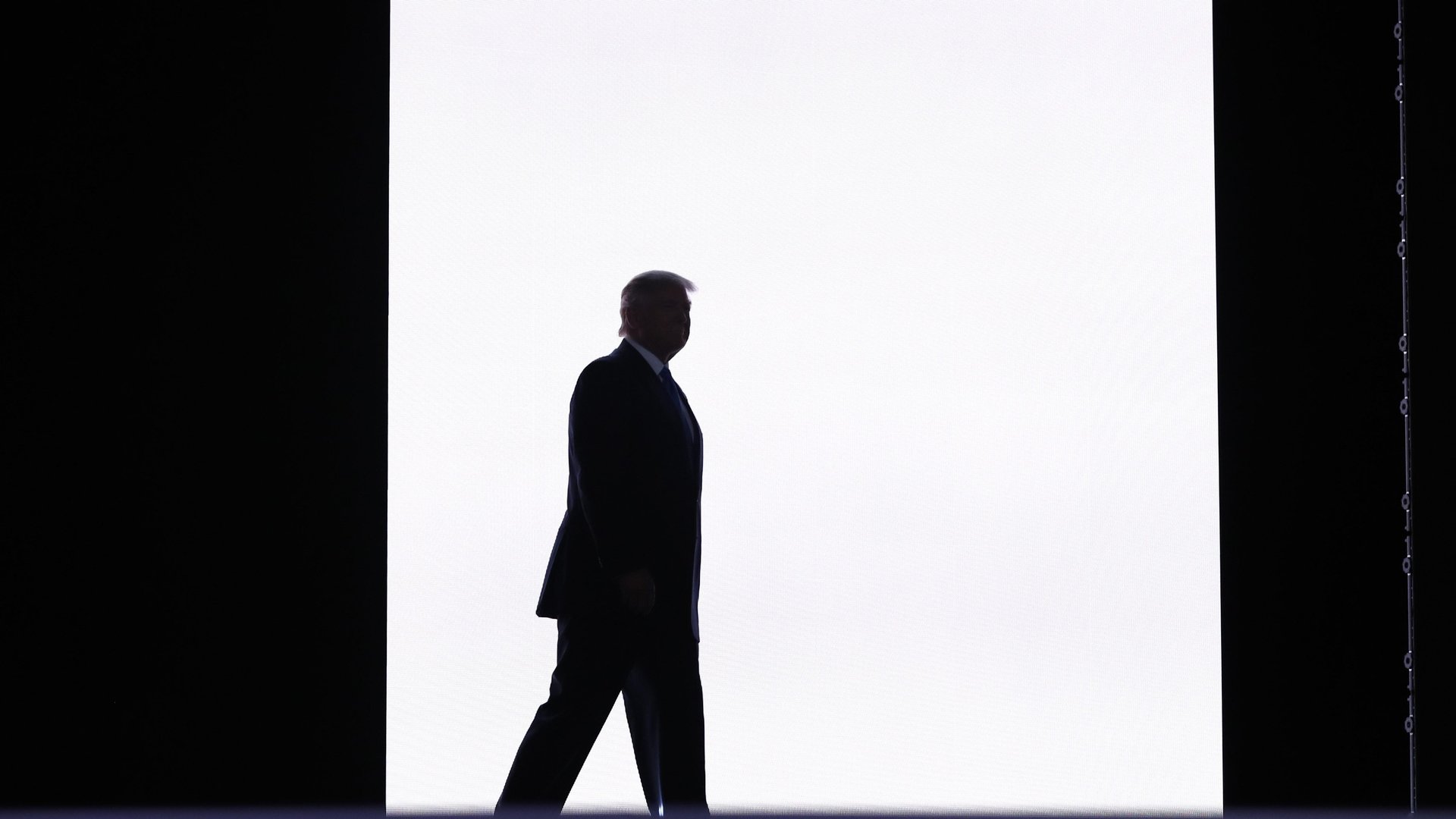How Donald Trump inserted himself between Christians and God
While Americans overall are losing faith in religion’s ability to help cure social issues, Christian Republicans in particular seem to have a newfound faith—in Donald Trump.


While Americans overall are losing faith in religion’s ability to help cure social issues, Christian Republicans in particular seem to have a newfound faith—in Donald Trump.
As recently as April, very religious Christian Republicans were amongst the groups most skeptical of Donald Trump, with 66% of weekly churchgoers opposing his candidacy, and only 15% expressing strong support for the candidate, according to a survey by the Pew Research Center.
Amongst his strongest critics were Evangelicals: 56% of them opposed Trump as a candidate. Those who were going to church less often were, instead, more likely to support Trump, with 50% of them supporting the candidate.
But now that Trump is the nominee, things have changed: 87% of registered Republican and Republican-leaning weekly churchgoers were found to support Trump versus Hillary Clinton. That’s a higher percentage than less frequent church attendees, they Pew survey found. Of that group, only 41% now say they support him “strongly.” Evangelicals are now Trump’s strongest supporters: 94% of them will back Trump (although the Christian Post, the largest Evangelical publication in the US, just issued an editorial warning against backing the candidate).
Donald Trump is thrice married, an adulterer who doesn’t appear to show remorse, and not an active church member, although he says he believes in God. Why would Evangelical voters overwhelmingly support someone that embodies everything they are not?
“To me, it’s proof that [Republicans] don’t believe in anything,” says Bill Press, who authored How the Republicans Stole Religion.
According to Press, the rather significant swing is all but surprising. “The one thing [religious Republicans] believe in more than any item of faith,” he says, “is that they are against the Democrats.”
This, he explains, is based on a very narrow understanding of faith that revolves on two pillars: opposition to both abortion and homosexual relations. The Republican party, beginning with Ronald Reagan, made itself the gatekeeper of such political positions, and has successfully continued to equate them with Christianity.
In this, Press says, the party has been aided by church leaders that focus on these two issues.
In other words, Trump’s success amongst Evangelical and other religious Republican voters isn’t entirely of his own doing. “He didn’t pretend to be what he’s not,” Press said, for instance by embracing a church routine. Trump simply banked on the fact that for Christian Republicans, any Republican candidate is better than any Democratic one, no matter how aberrant his behavior may be from the tenets of Christianity.
Trump’s traction-by-default with Christians illustrates just how futile the nature of the “Never Trump” movement was always going to be. And, despite the heartfelt warnings of Christian opinion leaders, there appears to be little chance that churchgoers suddenly start paying more heed to their religious principles than their political faith.